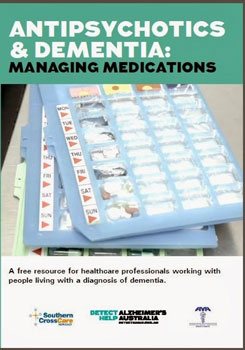Exceptional In Home Dementia Care Examples: Hugs not Drugs
Mia, a much loved mother of 3 adult daughters, had symptoms stemming from her dementia, that challenged carers in Nursing Homes. So much so, Mia had been asked to leave two Nursing Homes because her daughters would not consent to her being given psychotropic medication that would essentially “stupefy her”. Read on to find out how Daughterly Care’s expert and loving Dementia Live in Care improved the quality of Mia’s life and avoided harmful medication.
Mia loved to walk around Narrabeen Lake
Being out in nature by the water, feeling the breeze on her skin and through her hair, seeing the water move and the young children with their mother feeding the ducks made her smile, feel alive and connected to life.

Mia and her Daughterly Care Live in Carer often popped into our office on Narrabeen Lake to say hello before their walk. Mia was a truly delightful lady. (I write ‘was’ because sadly she passed over in 2013).
The manager has arrived
When Mia visited our Narrabeen office she would ask each of us what we were doing and offer praise (or a stern word). Mia found me in the filing area and told me I was doing a good job. She quipped “I hope they pay you well”. As a business owner I don’t receive a wage so I was technically correct when I replied, “Actually they don’t pay me a wage”. Mia was outraged. “Where’s the manager? I need to talk to her.”
Mia charged off resolutely towards Verlie, who I was pointing to. On her way to Verlie, Mia overheard one of our High Care Case Managers, laughing on the phone. (There are moments where if we don’t laugh we would cry… so we take all the laughs we can… to stay sane).
Mia patted the High Care Case Manager on the shoulder, “Stop laughing, you there on the phone, and get back to work!”
I asked Mia if she had worked as a Manager and her curt reply was “Of course!” I replied: “I thought so, you can tell very quickly who needs to work harder. I need a Manager like you here to keep the staff under control”.
Mia replied with confidence and self-esteem “My word you do!”
Mia’s short term memory difficulties meant she had forgotten where she was heading and why, so I introduced Mia to Nurse Verlie, our Managing Director and they had a friendly chat.
Most people would not realise Mia was living with a form of dementia because she presented so well physically and she made such good social conversation, as long as she was leading it. However in the afternoon she suffered terribly from Sundowning.
Mia experienced extremely “distressing anxiety” where she became very agitated and if not properly supported, she would sob for lengthy periods.
Often the ‘Mia’s of our world’ are inappropriately given anti-psychotic medication.
Let’s take a quick look at some recent Australian research.
Alzheimer’s NSW have a DVD ‘Antipsychotics & Dementia: Managing Medications – a free resource for healthcare professionals working with people living with a diagnosis of dementia’.
The video is 19 minutes long and whilst it was made for GP’s and other health professionals, if you were concerned about a family member being given too many medications, it is definitely worth investing 19 minutes to watch it so you are more informed around the issue. Click here to watch
Why has this video been produced?
Because recent research has identified that antipsychotic medication is used:
- too frequently
- for too long
- without timely review
- with little benefit
- with serious side effects and
- illegally i.e. the family or Enduring Power of Attorney only gave permission in 6.5% of cases according to a study of Sydney Nursing Homes in 2009 (Rendina et al., 2009 cited in[1] The Use of Restraints and Psychotropic Medications in People with Dementia pg.4
At the Alzheimer’s launch of this DVD, Professor Brodaty mentioned in his presentation that “psychotropic medications cost approximately $1.70 per day, whereas a quality care alternative costs approximately $6 per day”.
“The research also found that Caregivers are not being involved in the decision-making process of the care for their loved one. A 2009 study of Sydney Nursing Homes showed that only in 6.5% of cases was appropriate consent obtained” (Rendina et al., 2009 cited in The Use of Restraints and Psychotropic Medications in People with Dementia).
Also at the launch, Margaret Wood the daughter of a Nursing Home resident spoke of her experience of discovering from the monthly pharmacy bill that her Mother had been put on psychotropic medication without the family ever informed or being asked for consent. The medication caused her mother to become:
- bed bound
- unable to speak clearly;
- unable to walk; and
- depressed and talked of wanting to die.
And as a result the family were told their mother was ‘not long for this world’ so the family requested that their Mother be taken off all her medications and, surprisingly, Margaret’s Mother:
- started talking;
- started walking;
- started eating; and
- re-discovered the joy of living! Margaret said she now recognised us and was bright and cheerful.
What a difference the wrong medication can make to the health and quality life of an older person.
According to 2009 research of Sydney Nursing Homes:
“ Most psychotropics, by virtue of their action on the brain, are associated with an increased risk of sedation, falls, urinary tract infection or incontinence, and worsening cognition” [2]
“About half of people in residential aged care facilities and up to 80% of those with dementia are receiving psychotropic medications, although this varies between facilities. There is evidence to suggest that in some cases these medications have been prescribed inappropriately. (Hosia-Randell & Pitkala, 2005, National Prescribing Service, 2013).
How is this research and the launch of the DVD relevant to Mia?
Mia had been asked to leave two Nursing Homes because of her ‘challenging behaviours’. Her daughters would not approve her being given psychotropic medication. Instead they bought her back to her home and engaged Daughterly Care to provide our Live in Care service in her own home.
Mia was delightful, engaging and a real character… however she suffered very badly from Sundowning.
Each afternoon Mia would become extremely anxious. Her brain was tired. She needed a rest yet Mia could not lay herself down and have a cat nap, instead she would cry.
Mia was suffering and there was no consoling her with words. Any explanation was forgotten as it could not pass through her short term memory and become ‘longer held information’. In this situation… words just did not work.
So what did our kind-hearted, intelligent, creative, very experienced and very professional dementia Live in Carer do that was amazingly exceptional dementia care?
She addressed the client’s true need, drawing on her years of expert dementia care experience with compassion and creativity.

Our Live in Carer had to communicate via touch and emotion… she took Mia’s hand and asked her to lay down on the bed and then she asked “Is it ok Mia if I lay down here, I feel so tired?” and our Live in Carer said slowly, calmly and soothingly “sssssssssshhhhhhhhh it’s ok, you are safe, go to sleep… ssssssssshhhhhhhhhh it’s ok, you are safe, go to sleep” she patted Mia on the bottom, using a constant TEMPO… the same TEMPO you use to pat a crying baby to sleep.
Mia soon felt safe and comforted and fell asleep. Where upon our Live in Carer left Mia sleeping and she went to the kitchen to cook a nutritious, delicious smelling and tasty meal for dinner for when Mia woke.
When I first heard this I thought:
- that is amazing care
- that is exceptional dementia care
- that is relationship based care
- now that’s person centred care – addressing the real need, not managing the symptom with drugs and mislabelling the client with negative labels
- that really is “heart-felt care”
- what compassion
- that shows genuine regard for Mia
- talk about a premium service – hugs not drugs!
My next thought was….
… not many Live in Carers would feel comfortable doing that.
But when you have cared for an Elder ‘one-on-one’ for a number of years you develop a deep understanding and connection with them, this is relationship-based care. You enjoy the good times for most of the day and then when it gets tricky you draw on your years of dementia care experience and you experiment with creative compassionate thinking and you try one-possible-solution after another until you find the person-centred care solution that works best for that client, at that time!!!! And you know in advance that next time it might not work. Extreme patience, deep compassion, creative thinking and emotional intelligence and finally caring for the person and ABOUT the person, are the hallmarks of exceptional quality dementia care.
And then fear crept into my thinking ….
… and I wondered “Is being that close to the client inappropriate and therefore crossing professional boundaries?”
And then I decided, no, this is exceptional dementia care of the highest order.
This is why health professionals call ‘Daughterly Care’ when they are supporting and caring for a client living with a dementia condition”.
Our extremely anxious client was soon comforted to sleep, which was just what her brain needed – a rest – time out to re-charge. She was free of her anxiety and fears all without psychotropic medication. Her specific needs were met at the exact time she was expressing herself.
Our Live in Carer was not patting Mia’s bottom for her own benefit. She was settling Mia in a way that she found worked… after she had tried many other diversions and validation therapy.
Try it…
ask your partner to hug you and pat you on the bottom at the same tempo that you would pat a crying, over tired baby…
… when my partner did that, I was surprised how it made me feel.
I felt a primal sense of a “long-ago-experienced-sense-of-contentment-and-reassurance… on a deep almost unconscious level, I felt transported back to being comforted by my mother” and I was genuinely surprised it made me feel that way.
How many Live in Carers would lay down and rhythmically pat a distressed client to sleep on the bottom?
When I write “Daughterly Care’s Live in Carers provide ‘exceptional dementia care’ on our website…this is the sort of personalised, deep, relationship based, person-centred, in-home care I am referring to.
I can’t help but talk with passion about Daughterly Care Caregivers and Live in Carers – their experience, patience, kindness, compassion, creativity and emotional intelligence make them the best in the industry… they work miracles when providing Elder care.
Verlie’s mother always said to her “You are good medicine”. Just seeing Verlie made Thelly feel so much happier and ‘better’. We choose dementia Caregivers of the same ilk as Verlie – calm, kind, highly experienced, professional and compassionate… each one is ‘good medicine’ in their own unique beautiful way.
Warmly,

Kate Lambert B. Ec F. Fin
CEO and Co-found of Daughterly Care
At the initial assessment of Mia’s care needs it was decided that Live in Care was far better suited to Mia than 24 hour care. Why?
Our High Care Case Manager was experienced enough to know that Mia would not cope well with 3 changes of staff a day required for 24 hour care, whereas the one change-over of Live in Carers once a week would work best.
To meet award conditions 24 hour care has 3 Caregivers every 24 hour period, with Live In Care we provide the same Live in Carer for 3 days and a second Live in Carer for 4 days and those two Live in Carers roll forward on a rota for as long as the client is happy. Often a third Live in Carer covers sickness and holidays of the two main Live in Carers. Besides, 24 hour Live in Care is significantly less cost than 24 hour care as you can see on our ‘What does live in care cost?’ page.
In Mia’s case her Government Subsidised In Home Care Package paid for 2 days of Live in Care, her 3 daughters each spent 24 hours every week with their Mum and Mia personally paid for 2 days of Live in Care. That made 7 days a week of live-in-care very affordable and Mia’s daughters each spent 24 hours a week with their Mum and Mia didn’t have to sell any of her investments to pay for care.
Sources
[1] The Use of Restraints and Psychotropic Medications in People with Dementia
A REPORT FOR ALZHEIMER’S AUSTRALIA
PAPER 38 March 2014
By Associate Professor Carmelle Peisah and Dr Ellen Skladzien
Link to https://www.dementia.org.au/sites/default/files/Publication_38_A4_print_version_Web.pdf
Beautiful examples of exceptional in home dementia care:
Need more information? To know more about us, read why we started Daughterly Care, and take a look at our services. Meet the stars of our business, our in home Caregivers and case managers and operations team.
Read unsolicited feedback from our clients. We’re always thrilled to receive such kind words.
The next step is easy … contact us for a confidential chat about your needs or to organise your, free no obligation consultation email claireg@daughterlycare.com.au or call us on (02) 9970 7333.


